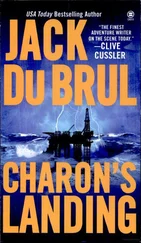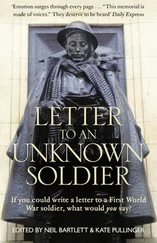So that’s what Jack was doing that day, getting on with what he thought of as “my glorious stupid life.” He was fiddling with his handset, wishing he could afford to buy some of the game’s currency, and thinking about how there should be a law to Give Kids More Money. Then a man appeared beside him.
Jack was so startled he dropped the handset and fell backward to the floor.
At this, the strange man laughed.
Then the strange man extended his hand, offering to help Jack up. “I’m Yacub,” he said. “I’m staying in the room at the back of the kitchen. Don’t tell your mother you saw me.”
“What the fuck?” Jack replied. He didn’t usually swear out loud at home; he used his “at home” way of speaking. But the stranger had a strong Middle Eastern–type accent that made Jack think of 24 and Homeland and a dozen other American shows and movies. Jack thought the strange man could definitely be a Very Bad Man—his trousers and shirt ragged and filthy, the way he stank of—what was it?—petrol and sweat—even if everything else about him—his manner, the way he was standing there in bare feet, the friendly look on his young face—said he wasn’t.
“You are swearing at me,” the man said.
Now Jack felt a wave of sympathy for him, followed quickly by a backwash of self-loathing. “No, no,” he said, “not really at you, more with you.”
The man waved his hand again, a little impatiently this time. Jack took it, and the man pulled him up from the floor. Jack thought that for a guy who was very skinny and five-five, maybe five-six at the most, he was strong. Jack himself was six-foot-five with the strength of a dandelion after it had gone to seed.
“You are Jack,” the man said. “I’m Yacub,” he said again. “I’m staying in the room behind the kitchen. You are a giant.”
I’m a giant, and you’re a little sprite. Who the fuck are you? Jack wanted to say. But instead, he said, “Why are you in my house?”
The man beckoned him to follow. He passed through the kitchen toward the room out back where the family kept stuff they no longer needed. Maybe he’s a burglar, Jack thought, some kind of weird petrol-addict burglar who instead of taking your cash and jewellery, moves in. But when the man opened the door to the room out back, Jack couldn’t have been more surprised. It had been cleared and cleaned and turned into a neat little bedroom. Jack could see his mother’s hand at work, down to the tidy curtains she probably told herself she would sew but ended up buying at the department store instead.
“Please don’t tell your mother you can see me. She thinks I’m dead.”
“Are you?”
Yacub raised his eyebrows. “Of course not.”
Jack looked at Yacub. Yacub looked at Jack.
“And I would like to play the computer game with you,” he added.
After Harriet lost her job, she concentrated mostly on the things she did badly: shopping for food, parenting Jack, cleaning the house, staying in shape, being married. Some of these things she did more badly than others—being married, for instance. She and Michael were both really crap at that. She reckoned she was probably most proficient at shopping for food, though even then, she was often mesmerized by the special offers and forgot the essentials.
For a while, Michael used to object to her endless trips to the supermarket. “Do you go every day?” he asked one evening, when he opened the fridge and discovered it was so full he had to struggle to close it again. “You’ve got better things to do.”
“No I don’t,” she said.
He turned toward her as though to reply.
They stood in the kitchen, looking at each other. The room filled up with everything there was to say, all the arguments they hadn’t had, all the explaining they hadn’t done, all the anger, the guilt, the recriminations and the apologies.
Jack walked in. “What can I eat?” he asked, although they’d finished supper less than an hour ago.
“An apple,” Harriet said, and she went back to her computer. Michael went back to the TV.
Losing her job had been cataclysmic for Harriet. After she’d had Jack, she’d spent more than a decade feeling blurry and out-of-focus in the world, but she’d finally woken up and started to sharpen up, and then—bam!—it was over. The past two years had been lost to supermarket shopping.
Today her focus was on figuring out what to do about the car. After Jack left for school, Michael for work, she stood for a few moments outside Yacub’s door, listening, before opening it as quietly as possible. He was sleeping soundly, snoring pleasantly. She left him a sandwich and a note. Then she walked to the supermarket and, once there, wandered around the car park trying to remember where the car was parked. A plane flew low overhead, coming in to land at Heathrow. Aha, a couple of rows of cars over, farther south. But the car was not there. She was stymied.
She remained long enough for three more airplanes to pass overhead. They lowered their landing gear at the same point and aimed for the runway. Harriet thought about how everyone inside the plane worried for a few seat-belted minutes until the aircraft hit the tarmac and levelled out. Then their worry was transformed into impatience.
She went into the supermarket to see if someone knew what had happened to her crumpled car.
Emily hadn’t been out with anyone since she broke up with Harv. She knew she’d been cruel to Harv, but at the time she felt she’d had no alternative; they’d had a pretend relationship and the death of her father had made her see it for what it was—a little weird, a little damaging. Since then her friends had tried to set her up from time to time, but she wasn’t interested. Work was always busy, and she had her film project, which her friends had taken to calling “Me, Myself and I” because whenever they asked Emily what it was about, she’d say, “Oh, just me and some stuff I’m interested in.” She turned down their offers of help—most of her friends worked in TV as well. They laughed at her, but she knew they also admired her a little. At least she was working on her own project, unlike most of them whose many ideas for zombie movies never got past the talking-about-it-in-the-pub phase.
Emily missed Harv, a little. He’d got involved with another girl immediately. She thought if they’d still been together she would have told him about her film project, about Harriet, and that, of all her friends, Harv would have understood what she was doing.
Her hair was a deep, dark shade of red, claret really, at the moment. Shooting had started the week before on Ginger —a new reality show about a group of young people with red hair—and everyone in the production team had dyed their hair for the first day of filming. In the bathroom, she looked at herself in the mirror. She looked even less like Harriet than before. There was no family resemblance that she could detect. Emily had spent hours spooling through her own footage, looking at Harriet from every angle, close-up, right side, left side, from behind—she had plenty of friends who looked nothing like their mothers except when sighted from behind. But there was nothing. Of course, she’d never actually spoken to Harriet. You don’t really know what someone is like until you talk to them. Once they spoke to each other, Emily knew everything would change.
The time to draw the filming to a close was approaching, Emily could feel it. She needed to finish the film and get on with her life. The falling man would play a part in this, though she still had no idea what that part might be.
Jack didn’t see much of his father these days. When times were good, Michael worked long hours to minimize risk and maximize profit. When times were bad, he worked long hours to minimize risk and maximize profit. His father didn’t much like his job at Oldman Skanks, though Michael laughed when Jack called it that, and Jack had even heard Michael call it that himself. Michael was kind of old these days, and he was a bit fat, and Jack knew that he smoked when he was out for a drink in the City—cigars, most likely—and he wouldn’t be surprised if his father keeled over dead one day, phwump , onto his desk. He was at that age, the right demographic. Last year Jack wrote a biology report about middle-aged men who drop dead from heart failure. He titled it “Oldman Skanks” and got a B. As for skanks, no, not his dad. As far as Jack knew, Michael had Harriet, and Harriet had Michael.
Читать дальше












